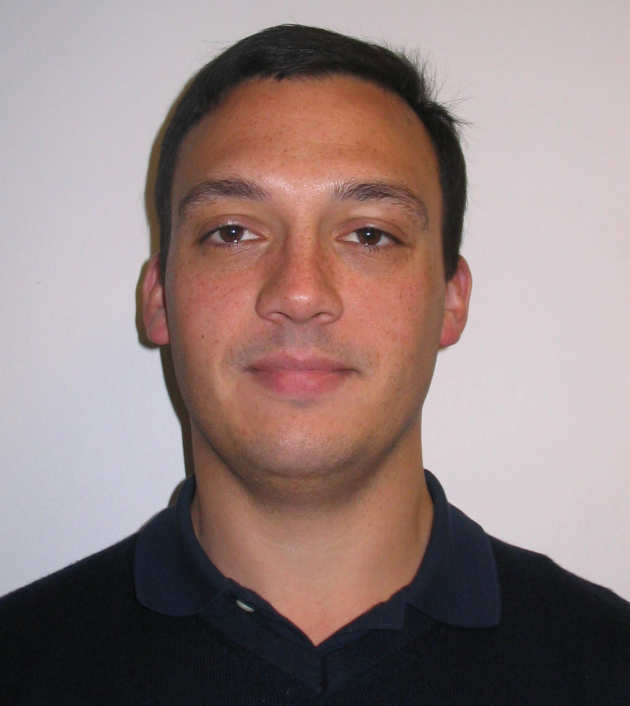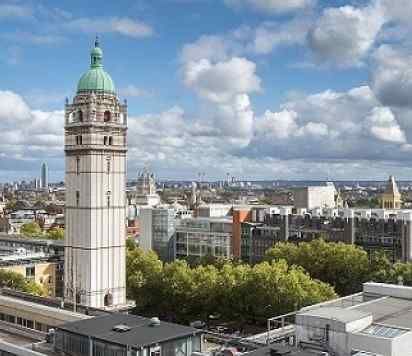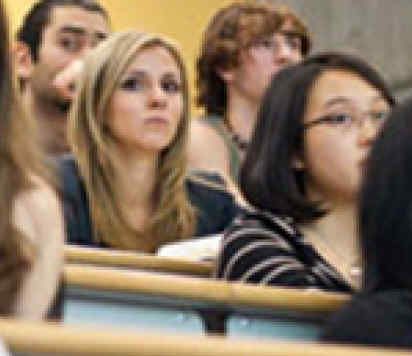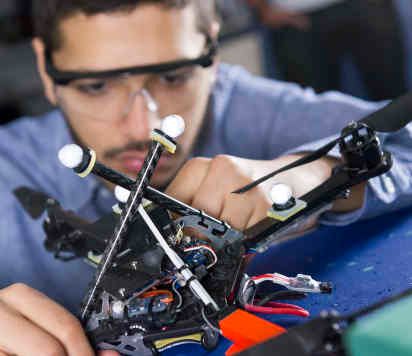 1. Why did you decide to study an MSc in Composites at the Imperial College: Department of Aeronautics?
1. Why did you decide to study an MSc in Composites at the Imperial College: Department of Aeronautics?
Composites are being used increasingly in consumer goods. The government has committed funds at the National Composites Centre and private companies in the UK and abroad are developing sophisticated composites for new applications. I think this is an interesting sector with the potential for growth.
I am always interested in further upskilling and an opportunity presented to take some time off from work to study. I’m hoping to have the flexibility to pursue a PhD in the area, or to return to work in a composites-related role.
I read for my undergraduate degree in the Department of Aeronautics at Imperial, so I knew the Programme Director and some of the lecturers on the Composites programme: I didn’t consider going anywhere else.
Oliver Gaite
Programme: MSc in Composites
Mode of Study: Part-time
Entry Year: 2011
Nationality: British
Undergraduate: MEng in Aeronautical Engineering
Institution: Imperial College London
Years: 2007-2011
Other Degrees/Qualifications: PgDL and LPC at BPP Law School
Work Experience: MoD: Rotary Wing Support Group, Project Aeromechanical Engineer
Years: 2009-present
2. What makes the MSc in Composites programme in Department of Aeronautics unique?
I have little knowledge of any equivalent programmes, so I don’t that it is unique in terms of its content or delivery. What may differentiate the programme is: the length of the laboratory programme; the full range of composite materials behaviours that are examined; placement of the programme in the Department of Aeronautics, where there is a good amount of research linking composite materials to aviation, space, F1, and defence; links to the Polymer and Composite Engineering (PaCE) group in Chemical Engineering; accreditation by RAeS, IOM3, IMechE; and the general reputation of Imperial.
3. What do you think of the Department’s facilities?
We could do with quiet study areas and a larger MSc computer laboratory given the size of the Computational Methods MSc.
The manufacturing and testing facilities are good and the testing equipment is being refreshed with modern machines and complementary software. Of course, we could always have more hardware and more technicians to instruct on its use.
4. How would you describe the community/culture at Imperial?
Imperial attracts students from all over the world. These students have different approaches to study, to lectures, to group work, and to social pursuits, so it’s difficult to average the community.
Students come to Imperial to study in one of four Faculties: Engineering, Natural Sciences, the Business School, or Medicine (I have never felt the absence of Arts subjects to have had a deleterious effect on our community or culture). Each Faculty is populated with different proportions of male and female students from the Imperial community, and naturally, inside these Faculty communities peoples’ interests and career aspirations tend to be focused on their Faculty.
The things that people have in common are that they are mostly bright, and mostly driven to succeed at whatever they want to do. Intelligent people know how to have fun and there are hundreds of clubs and societies with high participation rates. The clubs and societies are an easy way to meet people from other Departments and Faculties, which can really enrich your sense of what goes on at Imperial.
5. Which courses or subjects have you enjoyed most so far?
Stress Analysis and Laminate Analysis. I think the group design project has the potential to be interesting as well.
6. Have there been any seminars or events at the Department that have been useful in developing your skills and knowledge?
The FEA course is not for credit. If this counts as a seminar or event then I would say it is a great opportunity for people with no FEA experience to learn about the techniques involved and to use the Department’s software licences to become familiar with applications common in the composites industry.
There are humanities courses and a programming course that is accessible to undergraduates and postgraduates. I used to take French and Italian. Philosophy, Music Technology and Politics are on offer amongst other modules.
7. Describe a typical day as a Department of Aeronautics MSc student.
Arrive early for lectures. I get in at around 0730 so that I can do some reading / report writing before classes, but arriving any time before your first lecture would be fine. Attend a two-hour session in one subject. There is a 10-minute break at the halfway point. These are not usually interactive sessions, but students may ask questions throughout. Often there are demonstrations with composite specimens in the lectures.
Meet with other students to discuss a group project. We might meet for around an hour to discuss progress and agree the direction and timetable for the following week’s work.
Attend a three-hour laboratory in the afternoon (or spend the time writing up from a previous lab session). A lab session would need to be prepared for in the days prior to the session. Lots of reading about what you’re going to measure and what the problems are with the test. If you’re writing up, you usually have 1-2 weeks from the lab date to get the report completed.
I either go home or to the library to do tutorial sheets for a few hours in the evening.
8. Describe your experience of being on the MSc in Composites programme. How is it helping to shape your future goals and career aspirations?
My experience has been positive. I have enjoyed most aspects of the programme. I’m getting experience of designing and analysing composite structures and this is what I want to continue doing in my career. The programme is giving me the specific skills I need to apply for jobs in the composites sector. I’m also getting a reasonable oversight of research in composite materials and this is helping inform whether or not I pursue a PhD.
9. How has the programme helped you to develop your skills?
I have more experience of composite layup work. My research project involves the development of novel composites and I am designing manufacturing processes for these.
I have undertaken more lab testing specific to composites. I have greater understanding of the use and application of testing standards and of the interpretation and usefulness of data from testing programmes.
I now have experience of using laminate analysis software and more experience of FEA analysis.
10. Moving away from study, what has been your experience of the social life at Imperial and in London?
I played football here as an undergraduate and I have done the same as a postgraduate. Sports clubs play Wednesdays and Saturdays and there are usually social events after these activities. Most clubs have active social calendars. I don’t think there is time to take o n second or third sports clubs / social activities, though that might be tempting when you see how much is on offer at the Freshers’ Fair. Lots of people are able to find work in London after leaving Imperial, so it is possible to continue to have contact with friends once you have left.
There is always something to do in London. The city is home to many Premier League football teams. The National Theatre is easily accessible and Imperial is right next to three excellent museums. In the winter there is an ice rink on Exhibition Road and the Winter Wonderland in Hyde Park. There are some fantastically expensive pubs and restaurants.


